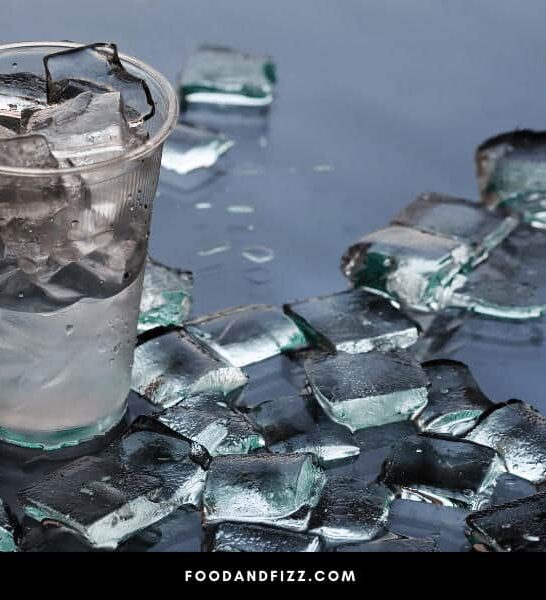Water is the main constituent of the atmosphere of Earth. About 70% of the surface of Earth is water. The chemical formula of water is H2O. The two hydrogen molecules are connected to the oxygen molecule through a covalent bond. It is a polar compound.
Water is a universal inorganic solvent because it is an odorless, tasteless and colorless compound. Water can exist in various states, as it can exist in the form of vapors in the gaseous state, it can exist in the form of ice in solid-state, and it can exist in clouds or in the form of precipitation in a liquid state.
What Is the Safest and Most Effective Additive to Keep Drinking Water From Freezing?
The freezing point of water is 32°F (0°C). You can prevent water from freezing through both natural and chemical additives. Adding salt to water is one of the most common and effective methods to prevent it from freezing. Chemicals can also be used in order to avoid freezing, but they can be dangerous for the skin if water is ingested. Therefore, natural additives are the most effective and safest method to prevent the freezing of water.
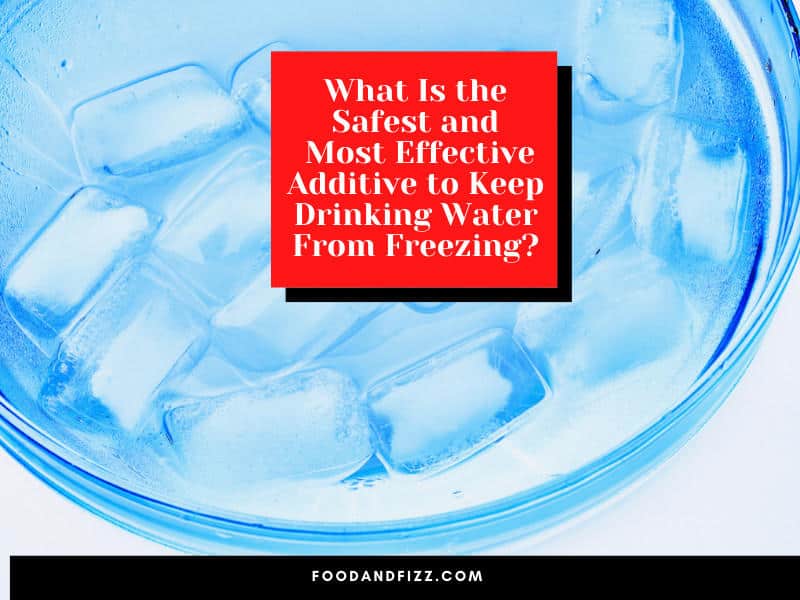
Use Alcohol to Prevent Water From Freezing
You can put a little alcohol in your water to prevent it from freezing. If you keep the bottle of the leftover liquor in your freezer, you will observe that it will not freeze. You are required to add only a small amount of alcohol to prevent its taste and color from changing.
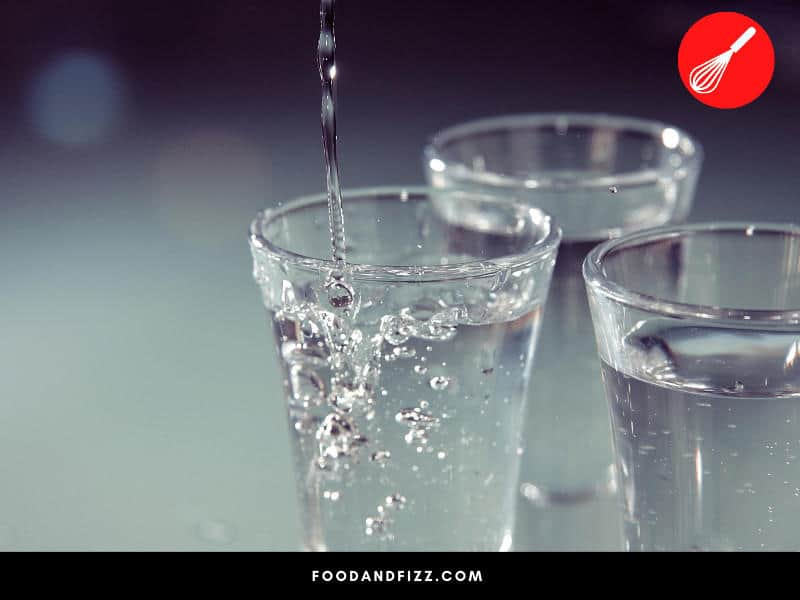
Use Salt to Prevent Water From Freezing
The most effective salt for this process is sodium fluoride. Adding salt to water can decrease the freezing temperature of the water. But the salt to water ratio for drinking water should not be more than 1:3.
Otherwise, it will prove to be lethal. It is unhealthy as it increases the level of dehydration in the body. The taste will also be altered, which can be repulsive for some people. Its lethal dose is approximately 8g/100kg weight. Lastly, a huge amount of salt (34g) will be required to prevent only 1 liter of water from freezing.
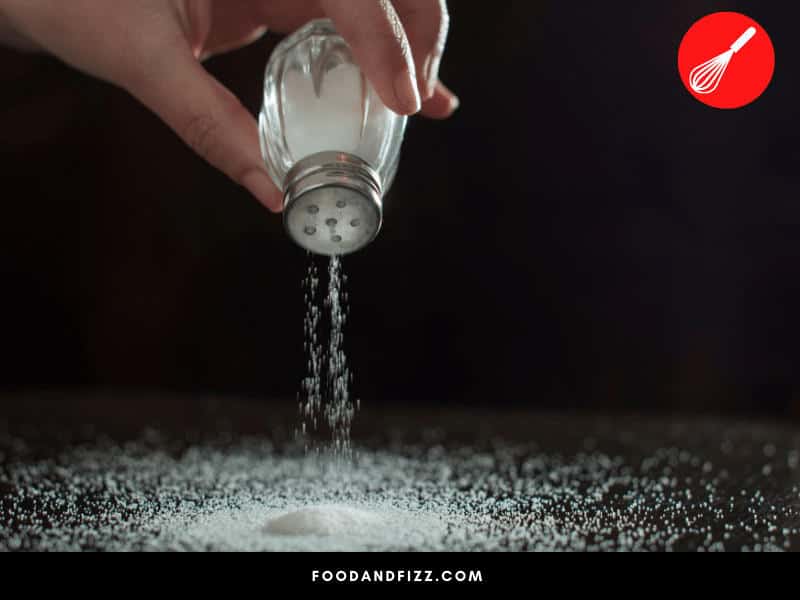
Use Sugar to Prevent Water From Freezing
Sugar can also be used for this process, but it is not always an effective method. The foreign particle added will prevent the water molecule from attaching and forming ice. In this way, the freezing point of water will be lowered.
The rate of melting remains unaffected by this process. Hence the melting of water continues at the same rate. And water will then start melting before forming ice.
When you add sugar to water, the number of water molecules captured by ice decreases. As a result, the freezing point of water decreases, and the time for water to covert into solid is also increased.
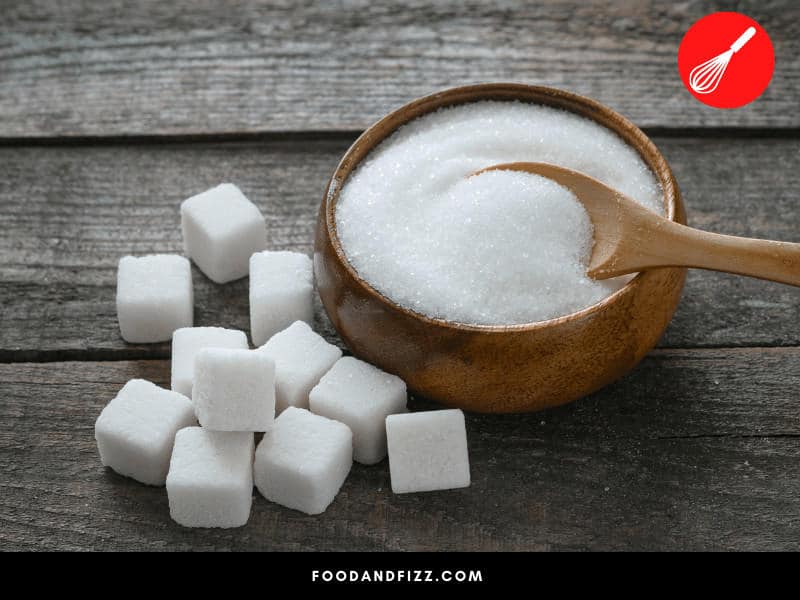
Why Does Water Freeze From Top to Bottom?
Water freezes from top to bottom. This is why ice floats on water. The reason for this is the density of water which is up to 997 kg/m³.
The density of a compound is the distribution of its mass per unit volume. This indicates how compactly the molecules are packed in a substance. When the temperature decreases, the volume also decreases. In contrast, the density of the substance increases with the decrease in temperature.
This same phenomenon happens with water, but the density of water increases to a certain temperature limit only, up to 39.2 °F (4 °C).
Beyond this temperature, water starts expanding. When the water reaches its freezing point of 32 °F (0 °C), it will become less dense than the water in its surrounding. This will make the water rise on the top and freeze.
How Does Freezing of Water Occur?
The changing of liquid water to solid ice occurs when intermolecular forces become stronger, and the molecule changes its state. The free-moving particles come close to each other and settle at a particular position.
The force of attraction keeps the molecules firm in their position, as a result of which crystalline solid starts forming. And energy is released as a result of freezing.
Factors Affecting Freezing Point of Water
Intermolecular Forces
When the intermolecular forces are stronger, the molecules are tightly packed together to form a solid at room temperature. So, the freezing point is higher.
Whereas, if the intermolecular forces are weak, the freezing point also becomes lower. Hence, the freezing point is directly proportional to intermolecular forces.
Density
The density of water is 997 kg/m³. The density is inversely proportional to temperature as the density of water increases with the decrease in temperature. But it increases to a certain limit only after which it starts expanding.
At the freezing point, the density of water decreases than the water in its surrounding, resulting in ice floating on the water.
Importance of Density of Water
The expansion of water due to its unique density is an important characteristic for animals in the ocean and lakes. During winter, the water freezes and stays afloat on top of the water body. This provides insulation to the water below.
However, if water would not expand on freezing, it would be denser than the liquid surrounding it, due to which water would freeze from bottom to top, which would prove to be detrimental to marine life.
Water Increases Its Volume as It Freezes
The atoms come close together as the substance freezes to form a crystal lattice. Its density decreases at this point; hence its volume increases when it freezes.
Polar Nature of Water
Water has a bent-shaped geometry, and it is a polar molecule. Due to bent geometry, the positively charged hydrogen atoms are towards one end of a molecule, and negatively charged oxygen is towards the other end.
Water can not attain a linear-shaped geometry because of the difference in the electronegativity of hydrogen and oxygen. Due to this electronegativity difference, a covalent bond is formed between the two atoms.
This bent-shaped geometry influences the way water interacts with different substances. Moreover, a hydrogen bond is formed between the hydrogen of one water molecule and the oxygen atom of another water molecule.
This hydrogen bonding of water is responsible for its unique properties. This gives ice its overall structure as hydrogen bonds become stronger when water freezes. And in this process, a considerable quantity of energy is released.
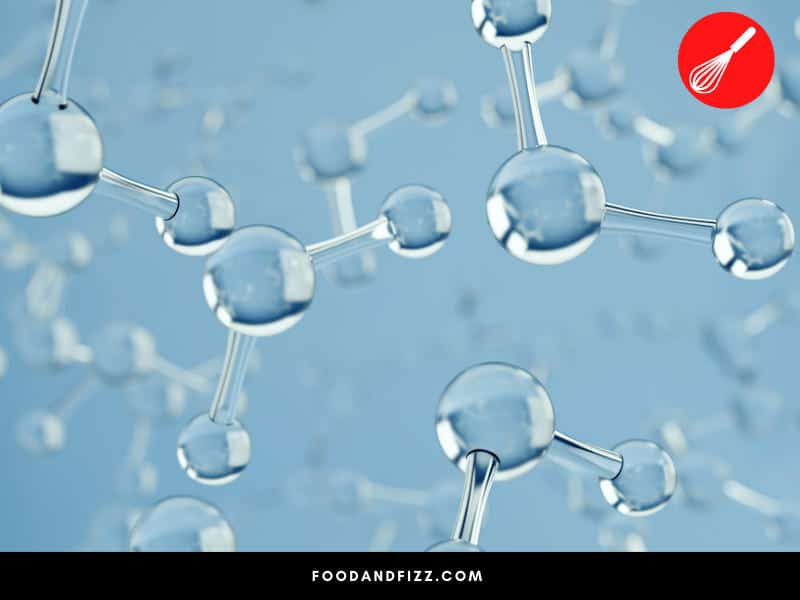
Frequently Asked Questions on What Is the Safest and Most Effective Additive to Keep Drinking Water From Freezing?
What is Supercooling a Liquid?
This phenomenon occurs in some specific substances whose melting and freezing points differ slightly. These substances are cooled even beyond their freezing and melting points, and they remain in their liquid state.
What is the Effect of Molality on the Freezing point?
Molality is defined as the number of moles of solute per kilogram of solvent. Molality is directly proportional to the decrease in the solution’s freezing point. This means that when the amount of solute increases, there will be a greater decrease in the freezing point.
What is the Mpemba effect?
It describes that hot water freezes faster than cold water. This may be due to many factors like evaporation, convection, dissolved gases, or supercooling.

